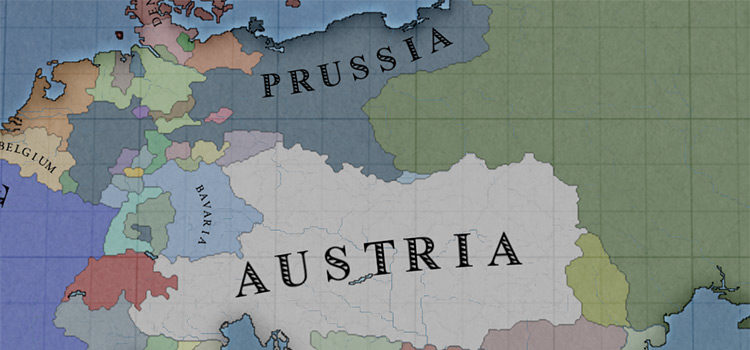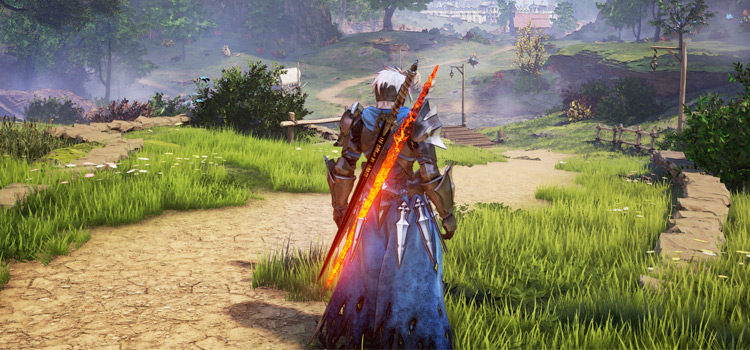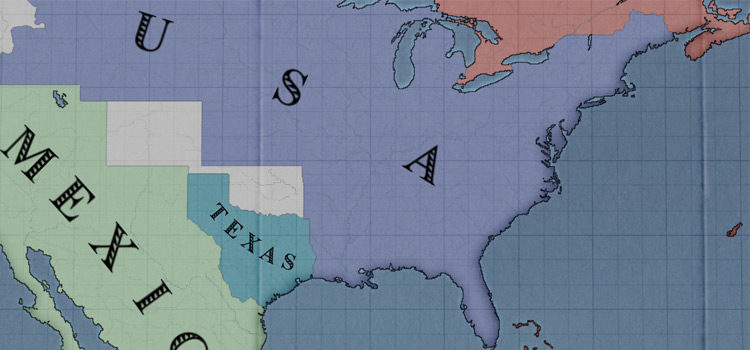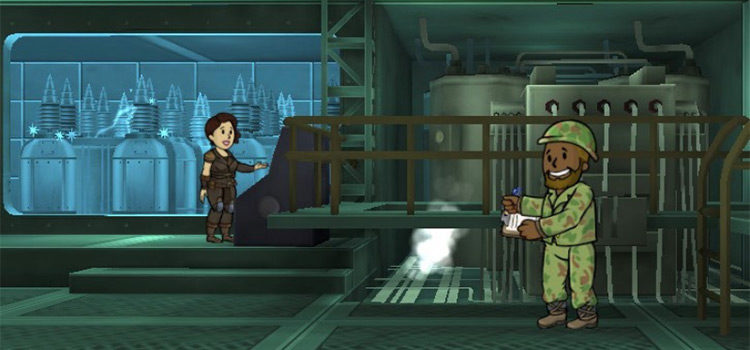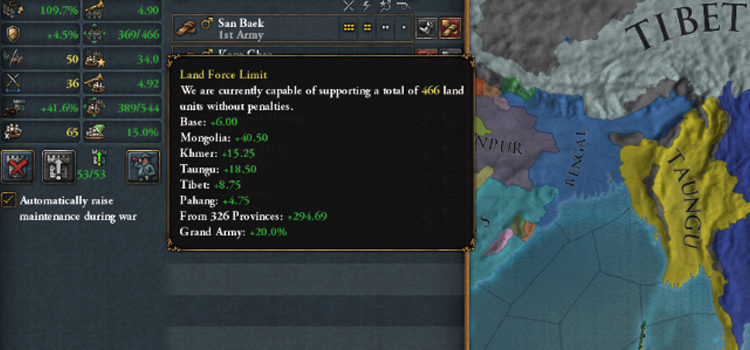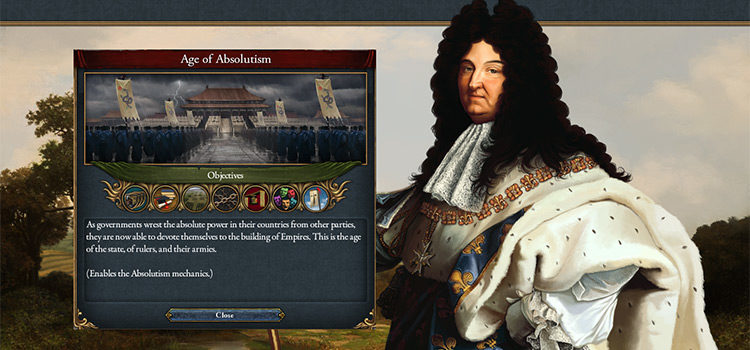Victoria 2 Jingoism: How It Works & How To Raise It
This post may contain affiliate links. If you buy something we may get a small commission at no extra cost to you. (Learn more).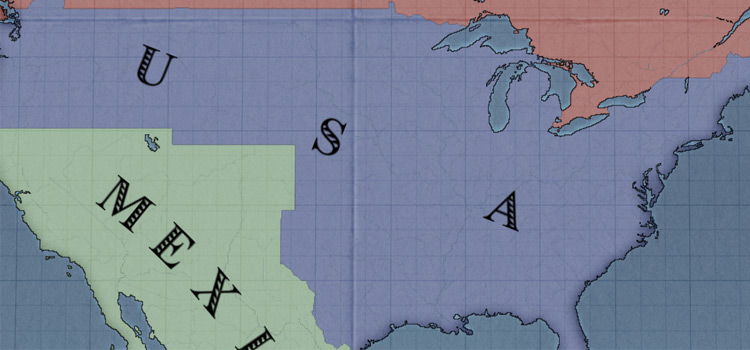
In Victoria 2, there are several political issues in your country at all times, each of them endorsed by a percentage of the population. Support for the military is one of these issues, and Jingoism is a civilian stance which advocates support for the nation’s military.
There are four stances that the average citizen can take:
- Pacifism believes that all war is illegitimate and that aggression, even in self-defense, is reprehensible. If the ruling party embraces pacifism, military expenditure will be severely limited and the people will suffer more because of war exhaustion, but supplies will be consumed much slowlier by your troops.
- Anti Military is an open disdain for the army, paired with a strong preference for peace, though not as strong as pacifism’s. The ruling party will impose some limitations on the military and supplies will be consumed slightly slower. This is for all purposes pacifism-lite.
- Pro Military conversely implies honoring the army and viewing war as perfectly acceptable, if not ideal. It allows full military budget and reduces the effects of war exhaustion on the general population, but supplies will be consumed at regular speed
- Jingoism is the opposite of pacifism, with full support for the military and for military expansion, overlapping with outright imperialism in real-life terms. Jingoism still allows the maximum budget for the military while reducing the effects of war exhaustion even further.
Why is Jingoism Important?
Whenever you want to add a war goal to an ongoing war, you will need your people’s support to do so. Even in the most authoritarian forms of government such as absolute monarchies and presidential dictatorships.
In order to be able to add any war goal costing infamy, at least 7% of your people must support jingoism.
This does not mean that reaching 7% is enough, however: as you declare a new war or add a war goal to an existing one, support for jingoism will drop by 25%.
This means that if 9% of your POPs support jingoism on the day you declare war, one day later support will drop by one quarter to 6.75%. That’s not enough, even if by a small margin, to add a second war goal.
Those POPs, having sated their lust for war, will instead support Pro Military – which does not count for the purpose of adding new wargoals.
So, to sum up: jingoism is fundamental because it allows for rapid military expansion in a game that hampers it at every turn.
Riling Up Your People
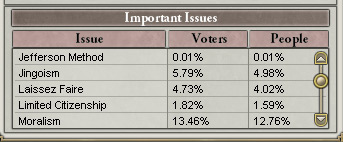
Support for Jingoism can be increased in a few ways by all nations:
1. Winning wars with ease, without suffering from high war exhaustion, will result in rising jingoism. But this is not really effective nor reliable because you will lose a chunk of support when you declare war in the first place.
2. Like any other political issue, jingoism can be increased through election events. This is a good reason for holding frequent elections, but it is still not reliable enough because it is RNG-based.
3. Increasing the number of soldiers will result in increased jingoism because soldier POPs tend to support the military more, but this method is quite slow and not as effective as one would hope.
Truth be told, jingoism is not a beloved mechanic, because it limits the player’s actions. And the toolbox available to circumvent it is quite limited, for most countries.
Still, by playing around with jingoism and prioritizing events that increase it, you can still get an edge, though there’s another mechanic that can be a game-changer.
Revanchism in Victoria 2

The word revanchism comes from the French “revenge”.
It represents your people’s desire to take back core lands held by foreign nations, your irredentism. Consequently, it will increase the rate at which your POPs support jingoism.
Revanchism is generated by other countries holding your core land: the more of your cores are held by foreign powers, the higher your revanchism will be.
The exact formula is based on the proportion of cores that are held by you versus cores that are held by others, and cores with a majority accepted culture for your nation will weigh more in the equation.
This mechanic is so important because the maximum bonus, achieved at 20% revanchism, is around +1000% jingoism – and that is absolutely huge.
How To Increase Revanchism
Provided that you have at least a core that is not owned by your country on day one, there is a very easy way of increasing your revanchism:
Just release as many puppets as you can to get rid of your own cores.
Releasing puppets is not effective at increasing revanchism on its own because you will lose all cores on the land you have given up willingly. Having fewer cores overall, however, means that foreign nations now own a greater share of the total, and this will increase your revanchism.
There are a few countries that can game the system to have more than 20% revanchism for the whole campaign, and they are great examples of the power of this mechanic.
High Revanchism as Italy
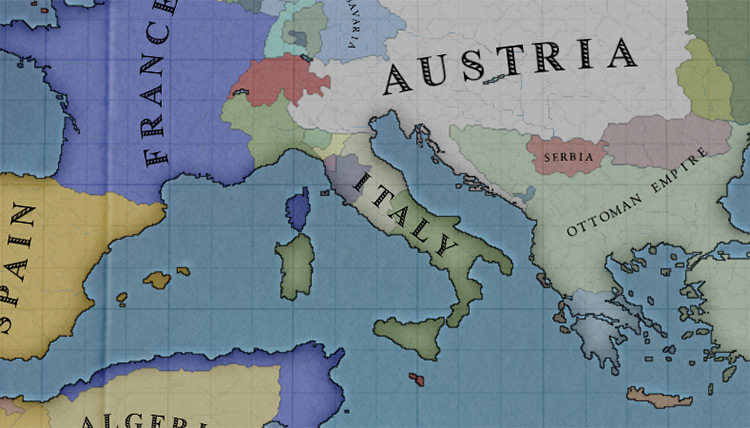
Italy can use the “Italia Irredenta” decision to gain several cores on Austrian territory, including North Italian-majority Venezia and Pola.
This should be enough to keep it above 20% revanchism in the early game, provided that said territory is not annexed.
Later on, if patrimony events granting cores on newly conquered land pop up, Italy can also release several Italian minor states as puppets to reduce the number of cores it owns, staying above the threshold and enjoying a long campaign with a lot of jingoism.
Ideally, these lands will be grabbed by a savvy player after a couple of large-scale wars of expansion (remember that reconquest wars do not accrue infamy), securing a rising empire and a position among the great powers until the end of the campaign in 1936.
High Revanchism as Germany
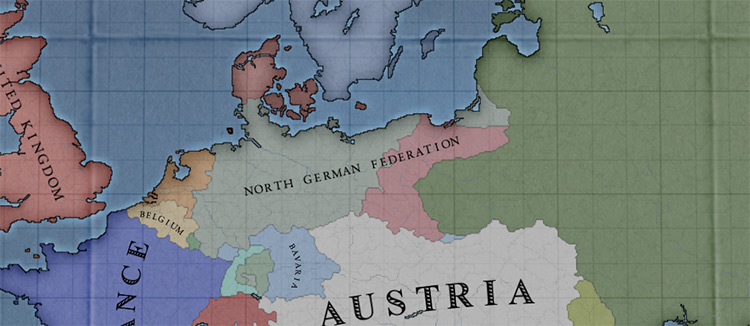
Prussia and the North German Federation can also use a trick to maintain high jingoism by releasing Poland just before enacting the “Three Hurrahs for Germany!” decision.
This will remove all of the North German Federation’s cores from newly liberated Poland, but the cores of the German Empire will stay put.
Later on, several German puppets can be released to increase the proportion of German cores held by Poland, thus increasing revanchism as a consequence.
However, re-taking that core land will be quite problematic later on. Since there are no easy painless ways to make a puppet independent in Victoria 2.
The loss is more than worth it, as this fully unshackles German military might and allows for a lot of expansion in Europe, usually at France and Austria’s expense.
